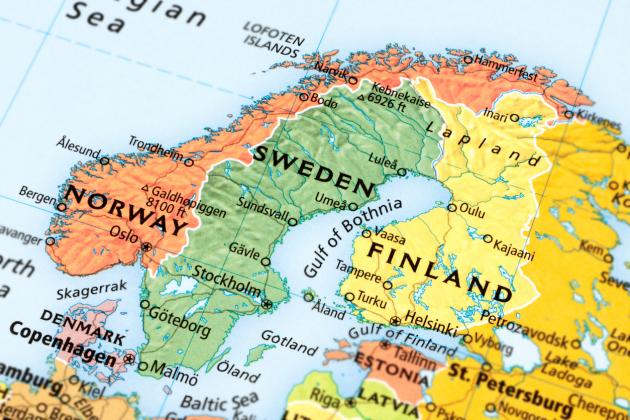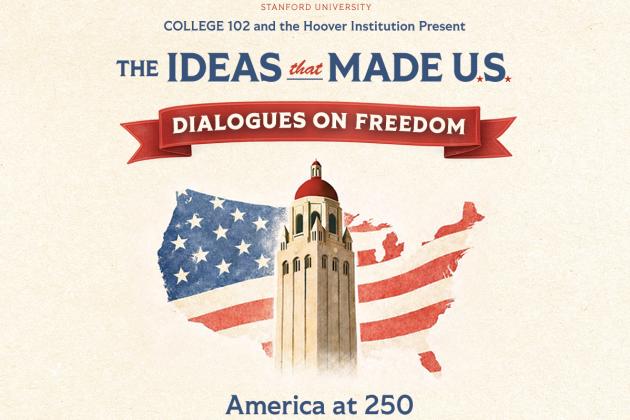PARTICIPANTS
Raghuram Rajan, Adrien Auclert, David Brady, John Cochrane, Paul Gregory, John Gunn, Bob Hall, Rick Hanushek, Ben Hebert, Nate Hilger, Laurie Hodrick, Bob Hodrick, Nick Hope, Anjini Kochar, Steve Kotkin, David Mulford, Greg Rosston, George Shultz, Richard Sousa, Kevin Warsh.
ISSUES DISCUSSED
Raghuram Rajan, Katherine Dusak Miller Distinguished Service Professor of Finance at Chicago Booth, former Governor of the Reserve Bank of India, and former Chief Economist and Director of Research at the International Monetary Fund, discussed “What Explains the Rise of Populist Nationalism? Some Speculative Thoughts.”
The thoughts follow Rajan’s earlier book Fault Lines: How Hidden Fractures Still Threaten the World Economy on origins of the financial crisis. There is something wrong with the structure of jobs, growing inequality, and structure of finance, not just bankers behaving badly.
The title of the talk, “on populist insurrections” includes broader themes. We think commonly about markets and government, but we should think more carefully about the third pillar of modern economies and societies, the social or community pillar. Bigger markets and much bigger government are driving out community, leaving many societies less able to adjust to shocks.
The performance of the economy as a whole hides many specific problems. Cities vs. smaller communities are hit differently. Community has always filled in the gaps, and communities are an important source of support for people, especially away from big cities and where big government is not working well. For example, in southern Europe, kids moved back in with their parents following the horrible recessions after the Greek, Spanish, and Italian crises. Without that community safety net, there could have been a rebellion. But this family, community, town form of informal social insurance is working less well.
(We discussed a bit the word “community.” Rajan is using it in the traditional sense of town, area, to some extent family, clan, religion, or social group, people who know each other and interact informally and face to face, not in the progressive sense of unconnected people who share some racial or political characteristic.)
So, there has been an explosion of anger from “Middle America” – and Middle England and France, and so on. This anger has been reflected in populist movements. So, our first question: Why was that anger focused on trade? (And, later in our discussion, immigration?)
Economists would say most job losses are technology, not trade. Of the job losses during the peak of China’s entry, at most 10% were due to China. Manufacturing job losses have been going on since 1943. Value added in manufacturing has been constant since the 1960s. Automation has reduced manufacturing employment, not trade.
Hall pointed out that even the idea that jobs are declining is false. The ratio of jobs to labor force has been rising. The response, offered by several: Yes, but the jobs are in different places and with different skills.
So why is the anger focused on trade? And why now, when the economy is doing relatively well, while Middle America’s problems have been around for a long time? Why are those suffering economic problems attracted to populist nationalists, and less on the traditional parties whose rhetoric at least was designed to appeal to the “working class,” the radical left?
Trade losses have not been large overall, but they are much more localized. One-factory towns are likely to be hit by trade. The effects of trade are more localized than the effects of technology. It seems areas impacted by technology gain as many jobs as they lose.
So, when the factory moves to China or closes from Chinese competition, the town falls to pieces and people notice.
People don’t move or retrain, they stay. High skilled people do seem to move on easily. Then the community breaks down. We see hospitals and stores close, house prices fall, drugs and teenage pregnancies rise.
Why don’t people move? The job may be different, and people need retraining. There are typically no local retraining facilities – those are in the cities, as they are located where people need them constantly not just when one factory moves. It’s an uncertain process. Moving to get unskilled jobs is easier. But paying the cost of moving to get a lower paying job is not attractive.
A long discussion followed. Why don’t people move? And why don’t new businesses move in where there is a town full of willing workers? How much is non-portable health insurance, being stuck in housing etc.
This has been going on for a while. Why the sudden anger at the system now? The financial crisis revealed that the elite don’t know what they're doing. After the crisis, no banker went to jail. After getting us in the crisis, the elite couldn’t get us out, showing again their incompetence.
The people mad now were not the bottom of the heap. They were in the better manufacturing jobs. They may not have been advancing quickly, but they saw the system as fair, and they were doing ok. Rajan mentioned “Strangers in their own land” interviews white workers in Louisiana during the Tea Party era. It offers an image: people who think of themselves as marching in line, toward the American dream. The line has been moving slower, but it was still moving. They don’t resent slow progress as long as it seems fair. They resent people cutting the line. Brady: pointed to Katherine Cramer’s book on Scott Walker showing the same phenomenon.
They got the feeling that the system is biased against them. Though workers, they are not pro government, affirmative action, government attempts to lift from the bottom (successful or not). They’re not worried about the 1%. They want the market system to work. They don't want bigger government. They work, and perceive big-government solutions as helping people who don’t work.
A long discussion followed on social programs. The underlying problem is a perception of an unfair system, where people are jumping the line, be it by immigration, trade, corrupt government, and so on. The discussion pointed out that much of this is perception not fact, but the point is the perception.
Hall pointed out that: The financial crisis didn’t have lingering effects. The economy, especially earnings are slow because of 1) extremely slow growth of productivity 2) the collapse of labor force participation — according to Hall, not the result of the recession. Younger and older people are less likely to work 3) A substantial decline in labor share of income. The shift in composition of output towards products with high profit shares (for example Google) is most of that, not different bargaining power among existing firms.
Others responded, yes, but the point is perceptions. The financial crisis and the government’s response via Obamacare, stimulus, and a regulatory onslaught, got Middle America to see the governing elite as incompetent, and out of touch with their problems.
The third piece of the puzzle is a media revolution. Instead of three channels, we live in a hundred bubbles. And social media like twitter allow a populist message to go straight from politician to voter without the usual institutional control. Rajan pointed to Father Coughlin’s radio broadcasts in the 1930s as a previous similar event.
So, finally, to the main new point, the role of community.
In these situations of localized distress, a strong community would help. Rebuilding skills, tempering misfortune, preventing social collapse. The populist nationalist to some extent provides a sense of community, a national community of “people like us.” Alas, that leads to “people not like us” to give a sense of belonging. Trade and immigration focus gives a sense of us vs. the not us.
The problem of course is that this kind of ideology gives a thin sense of community and is a poor replacement for the real thing. And nationalist populism needs a constant stream of enemies. We’re not there yet, but it raises the question. It’s interesting of course that identity based politics started on the left in America, but it accounts for much of the success of the right now.
What to do? Technology can help. There are limits to moving people to where the jobs are. Rajan mentioned broadband, which allows new companies to move to older areas.
Shultz mentioned that: Community colleges are doing a great job, especially when working directly with companies. He pointed out that programs where community colleges work with firms, so people see the jobs they are training for, are particularly effective.
Cochrane complained that this sort of community rebuilding is a small answer to a pressing problem that seems to be tearing the advances of trade, globalization and international institutions to pieces. We cannot wait for this to try and fail too.
Discussion moved to smaller, more local, and more competitive government. Certainly a Federal Revitalize Communities act is not going to work. The success stories involve creative work by local communities to find particular niches where they could rebuild. Hanushek mentioned the success of Rochester NY to move to a smaller high tech base after Kodak and Xerox declined. Cochrane complained though of toxic political environments in some places. If you have to pay huge taxes towards legacy pensions or a corrupt city government, you won’t move a company there. The revival of Detroit seems to be a counterexample.
- John Cochrane









